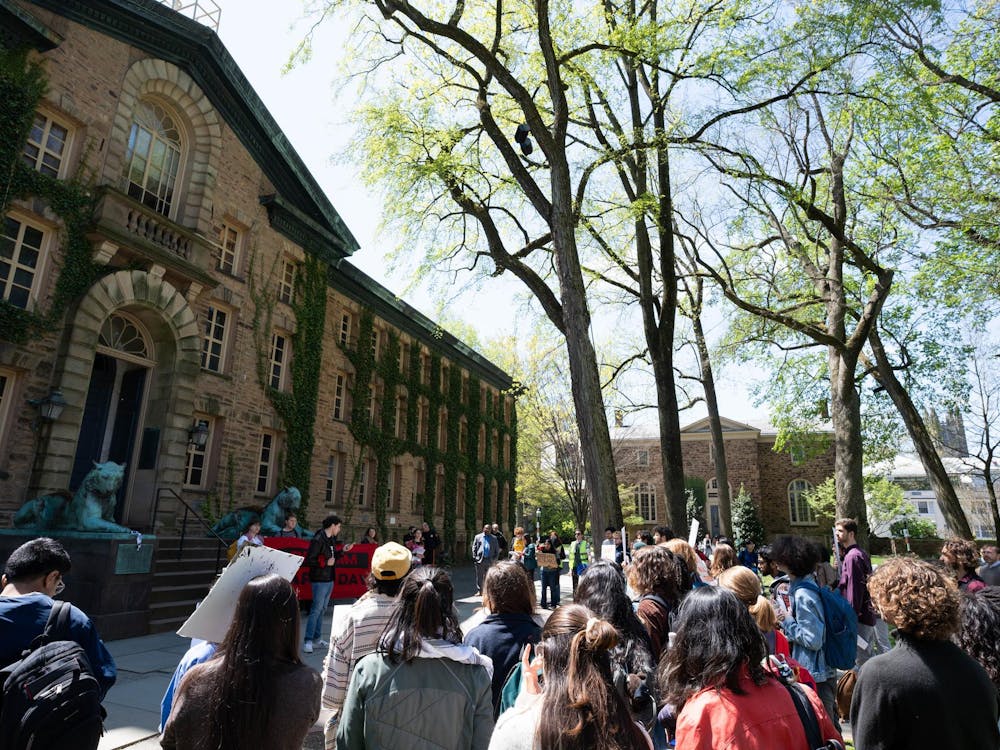The Daily Princetonian recently published a series of three articles documenting various aspects of the operation of the University’s Faculty-Student Committee on Discipline. These articles explored everything from the number of incidents reported to the Committee to the process the Committee employs when reviewing a case. Concerns were raised about the Committee’s lack of transparency, the conduct of its hearings and the severity of its disciplinary measures. In light of these criticisms, the Board recommends that the University administration review the Committee’s policies as well as the implementation of these policies so as to address many of these complaints.
The punitive practices of the Committee outlined in "Rights, Rules, Responsibilities" have recently been questioned and should be reviewed in order to ensure that the Committee best serves its purpose. Dean of Undergraduate Students and current Committee Chair Kathleen Deignan was recently quoted in one of the articles affirming the University’s approach to discipline as educational. However, punishments levied against students have been criticized as overly harsh, to the point where the learning process the Committee purports to uphold is destroyed. The Board agrees that punishments are too harsh given the level of guidance afforded to students. While the process is not meant to be adversarial and does provide students an adviser, the Board agrees with local attorney, student adviser and former 'Prince' columnist William Potter ’68 when he— in the same article— argued that the current levels of punishment merit greater levels of guidance. Thus, the Board believes that a review of this practice is necessary to determine how to maintain the educational aspect of the disciplinary procedure.
Another procedural criticism rests with the way the Committee practices its own policies during hearings. Potter and Wilson School professor and student adviser Stanley Katz both argued in the'Prince' article that the Committee becomes invested in its own arguments and evidence to the point where the presumption of innocence in hearings is lost. The presumption of innocence is important both to ensure that innocent students are not convicted and to maintain student confidence in the Committee. Further, a presumption of guilt eliminates the protection afforded to students under the Committee’s high standard of “clear and persuasive” evidence. While the Board does not have access to the hearings themselves, the gravity of this criticism is sufficient to merit administrative review.
Finally, the Committee has been criticized for not implementing policies to promote transparency. The Board understands that students bear some of the responsibility to understand the policies of the Committee. Freshmen are given presentations on the Committee as well as copies of "Rights, Rules, Responsibilities." However, the Board believes that the Committee’s status as a University body that directly interacts with students necessitates a higher level of transparency than is currently in place, and further argues that the opacity of the institution’s process has resulted in a lack of confidence. For example, the Committee does not release statistics of the number of cases heard or the number of convictions. While another of the three 'Prince' articles cites the Committee’s belief that the release of such numbers would harm the Committee’s reputation, the Board instead argues that increased transparency would improve the Committee’s standing in the eyes of the student body. Further, in an email to the Board, Dean Deignan expressed her willingness to release these numbers in future annual reports. Understanding that exact statistics may violate the privacy of students, the Board urges the Committee to release average statistics and encourages an administrative review to determine further ways to improve transparency.
The Board believes that the number and the seriousness of these criticisms necessitate another look at these policies. There is no record of a recent review of the Committee on Discipline. In an email to the Board, Dean Deignan only highlighted recent changes made to the Committee’s membership as well as its handling of behavioral cases, and further clarified that faculty action is required to change Committee policies. The Board further believes that these criticisms have resulted in a lack of confidence in the Committee, something the University administration should work with students to fix. Policies and practices have come under fire, and a review, along with the appropriate changes, is the best way to restore confidence in the Committee and ensure that it carries out its purpose effectively and fairly.
Mitchell Johnston is recused due to his position on the Princeton Honor Committee.








